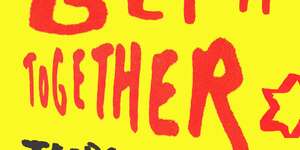sir Was
sir Was
country: Sweden
genre: Indie
styles: Indie Jazz, Indie Soul, Alt-Pop, Bedroom Pop, Indie Pop
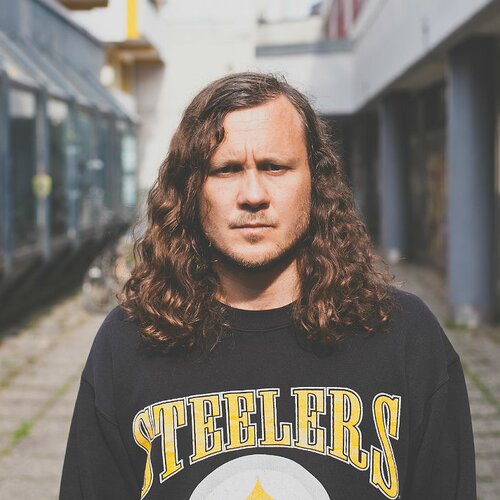
Let The Morning Come
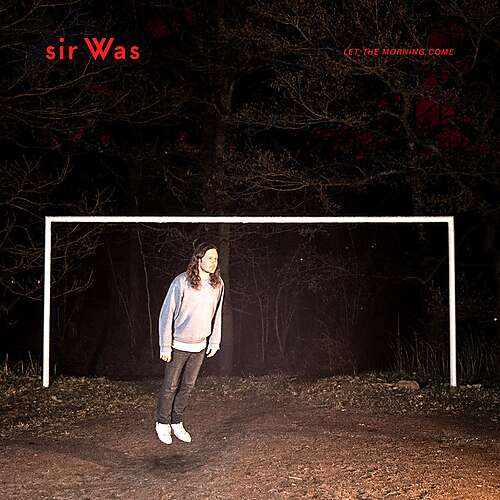 LP
LP
Spotify Bandcamp Soundcloud
Reviews and Comments
2020 was supposed to be Joel Wästberg’s big year. Still riding high from the release of his second album as sir Was - 2019’s Holding on to a Dream - the Swedish multi-instrumentalist was booked to open for Little Dragon across Europe and the US. When the tour was cancelled due to COVID, he decided to channel all his energies into writing new music instead, but in August of that year he received some life-changing news. Tests revealed he carried the gene for a rare, hereditary condition causing multiple strokes.
“At first I got very sad and scared,” the 39-year-old says today of the devastating diagnosis, speaking from his home in Gothenburg. “But at the same time it was like all the other worries I carried suddenly didn't matter. I just got this very intense feeling of being alive.”
This dichotomy lies at the heart of his beautifully bittersweet third LP. Meditating on love, growth, self-acceptance, forgiveness, mortality and the passing of time, Let the Morning Come contains Wästberg’s most candid writing to date. And yet, for all the heartache that comes with being cruelly confronted with one’s own mortality, the prevailing impression Wästberg leaves listeners with is one of hope, resulting in a collection that is life-affirming in the very truest sense. As he puts it himself on the arrestingly autobiographical ‘One Day’, “Ran a marathon to make it here, waited all my life for this: I’ll take the risk to get the chance.”
Marathon feels an apt description of his journey to this point. Born in Frillesås - a tiny village on the west coast of Sweden - Wästberg displayed a keen interest in music from a young age, soaking up classic records by Stevie Wonder, The Beatles and Led Zeppelin via his parents. He took up cello at the age of eight, before swapping it for saxophone two years later and - showing instant promise - he began practising avidly, aspiring to be a professional jazz musician like his hero Charlie Parker. At 18 he won a place at one of Sweden’s most prestigious folkhögskola, and subsequently went on to study jazz at university in Gothenburg.
It was mid-way through these studies that Wästberg had an epiphany. “I suddenly felt like, why am I doing this?” he recalls. “I had reached a point where I could play all these complicated things and I was a young, promising sax player, but [playing jazz] just began to feel pointless. At 17, I had heard D'Angelo's Voodoo and my mind was blown, but I thought jazz was the thing to do. And now, all of a sudden I didn’t want to practise saxophone.”
Instead, Wästberg began using the university’s practise spaces to play drums, enrolled in various classical composition courses, and began widening his listening habits, delving into the work of John Cage as well a variety of African artists, including Oumou Sangaré, Thomas Mapfumo and Danyèl Waro. Hugely inspired by the latter, he signed up for an exchange programme with the University of Kwasulu-Natal in South Africa, and subsequently spent six months teaching in Durban, immersing himself in the local music scene and taking trips to places like Mozambique and Zimbabwe.
Upon completing his studies and returning to Gothenburg, he juggled working multiple jobs with playing shows, until he was approached by José González, who he knew through his friendship with Yukimi Nagano of Little Dragon. González invited him to play percussion and keyboards for his band Junip, and Wästberg became a full-time touring musician, fulfilling a lifelong dream in the process. And yet when the band was put on hold in 2014, it set Wästberg on the path of realising another.
“Suddenly there was no more touring with Junip for God knows how long and my money was declining,” he recalls. “I broke up with my girlfriend too and it was like, what do I do? And in this crisis I realised: wait, I've actually been yearning to put out music of my own. Because all this time, I'd been making my own music, putting together sketches in GarageBand and Logic.”
With encouragement from his friends in Little Dragon, he began sharing his songs with labels, quickly receiving praise from Stones Throw-founder Peanut Butter Wolf - home of his heroes Madlib and J Dilla - before ultimately signing with German imprint City Slang. His acclaimed debut Digging A Tunnel, was released in 2017, praised for its fusion of “Pan-African rhythms, funk, electronica and jazz with ‘precision-engineered disorder.’” In 2019 he signed with Memphis Industries for the release of the equally lauded follow-up, Holding on to a Dream.
Today, Wästberg cites perfectionist tendencies and a fear of judgement as being the main factors as to why he didn’t pursue a solo career until the age of 35. “I'm a bit ashamed of admitting it, but I really feel very strongly that I have to be really great. I am very driven. I feel some need to show myself, and the world, that I'm good.”
The self-produced Let the Morning Come is the latest step in his evolution as an artist renowned for conjuring dreamy melodies from unconventional arrangements. Drawing on the luxurious sounds of Marvin Gaye’s masterpiece What’s Going On, and utilising an eclectic palette that encompasses complex polyrhythms, Medieval recorder harmonies, and the languid sigh of a second hand Hammond organ, Wästberg sought to “condense” his songwriting, with the aim of evoking the immediacy of the music of his youth.
“The Beatles can write a song that's 3 minutes 10 seconds long, and it's like something insane just happened but it's just a song that you can play on the radio. I'm not comparing myself to the Beatles, but I am aiming to take away all the unnecessary things, and make these gems.”
Lyrically too, time is of the essence, as displayed in song titles like ‘Before The Morning Comes’, ‘I Don’t Think We Should Wait’ and ‘Time To Let It Out.’ This palpable sense of a race against time is heightened by the fact he suffered a stroke in January of this year, when the album was “99% complete.” Now thankfully recovered, the experience has only strengthened his resolve to grasp every possible opportunity and to live life authentically and without fear, ideas which ultimately permeate the album.
“If it brings a tear to your eye, I guess it was worth the try,” he muses on ‘Time To Let It Out’, while ‘Spend A Lifetime’ finds him gently cajoling the listener with questions like, “Time is running out, how long you gonna wait?” That the results are genuinely thought-provoking rather than cloying or didactic, is thanks to both the sincerity of the sentiment and the inventiveness of his arrangements.
Wästberg explains, “I was debating discussing these themes, but then I realised I would be lying if I didn't talk about them. And of course, this is a very personal thing, but I really hope that I've managed to write songs that aren't about me and my specific situation… Because, I mean, everyone's gone through a lot of stuff - it doesn’t have to be these big, life-changing things. And there will always be struggle. Mostly, I just hope people enjoy the grooves.”
Certainly, they’re there in abundance on Let the Morning Come, a revelatory and restorative collection that suggests 2021 might just be Wästberg’s big year yet.
latest releases
 Single
Single
Get Up (Funny Weather Remix)
out on May 17, 2024
via No Label
 Single
Single
Sometimes You Got To (Seb Wildblood Remix)
out on March 01, 2024
via No Label
 LP
LP
We Can Go Anywhere From Here
out on November 17, 2023
via No Label
 Single
Single
Give Me A New Role
out on September 20, 2023
via No Label
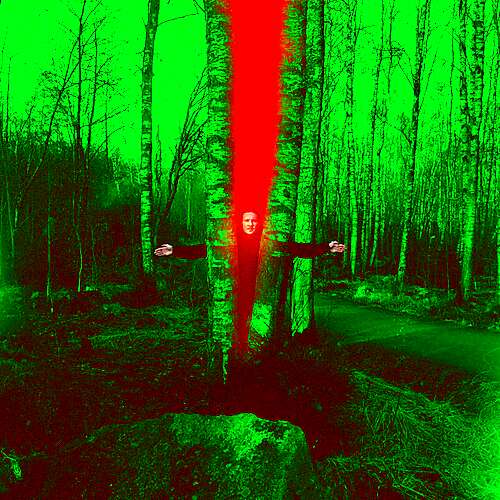 Single
Single
Wish I Could Stay
out on April 12, 2022
via No Label
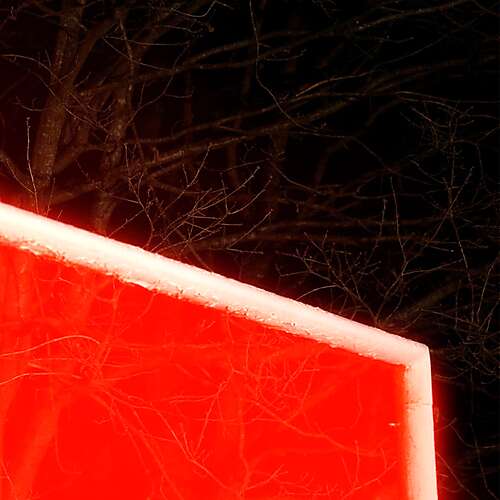 Single
Single
Before The Morning Comes
out on September 20, 2021
via Memphis Industries










